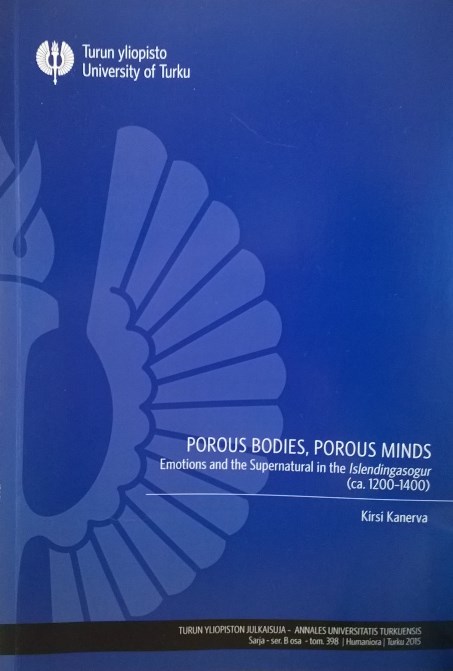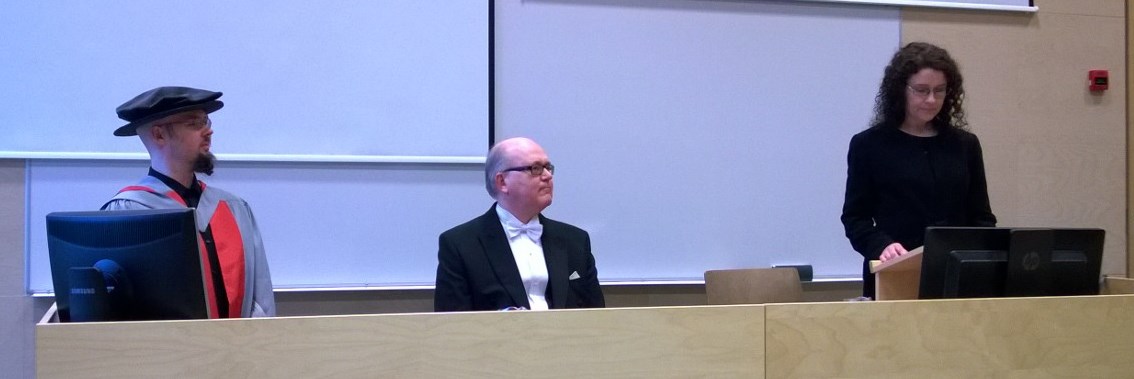Samalla kun muistelemme viimevuotista Litzen-luentoa julkaisemalla Rob Boddicen haastattelun (ilmestyi alun perin Kulttuurihistoria. Nyt -lehdessä), mainostamme ennakkotietona, että vuoden 2024 Litzen-luento järjestetään perjantaina 22.11.2024 klo 16 Aava-salissa, ja vieraanamme on arkkitehti Henna Helander. Tervetuloa silloin!
In 2023, the Veikko Litzen Lecture was organised for the 30th time. Our guest was PhD (FRHistS) Rob Boddice who is working at the University of Tampere and who has earlier held positions at Harvard University, McGill University, the Max Planck Institute for Human Development, and Freie Universität Berlin. Boddice is well-known for his several books on the history of emotions. He is currently writing a book about the history of the placebo effect, forthcoming in 2026.

The Litzen Lecture took place at the Aava Hall (Arcanum) on Friday 1 December 2023, and it attracted a large audience. Hannu Salmi had a short chat with Boddice, and we publish it here.
Hannu: Thank you for your visit to Turku, Rob! You have written very extensively not only about the history of medicine, and science in general, but also about the history of emotions. Your book A History of Feelings was published in Finnish in 2022 under the title Tunteiden historia. What brought you to the history of emotions in the first place? What is it about the history of emotions that fascinates you?
Rob: It was an honour to be invited to give the Litzen Lecture. It was the key event for me in 2023.
I was working on the history of emotions before I really understood that it was a thing. An old friend and colleague reminded me recently that we co-taught a course at the University of York on ‘Mind, Ritual and Anthropology’ back in 2004, when we were both graduate students. It was my entry point to thinking about how to reconcile neuroscientific knowledge with the humanities. The emotions lay at the centre of that conundrum. My PhD thesis had the conceptual, moral and social history of cruelty at its core, and I realised only dimly at the time that the whole thing hinged on the creation and enforcement of feeling rules and the connection of feelings to practices. It was only much later that I discovered a hive of activity in this field called ‘the history of emotions’, and circumstance landed me in Berlin, working at the Languages of Emotion Excellence Cluster at Freie Universität and at the Centre for the History of Emotions at the Max Planck Institute for Human Development. I found myself among an innovative and energetic group of scholars, developing an extant corpus of theoretical sophistication. All of it helped me make sense of what I had already done and pointed the way forward.
Hannu: You gave a brilliant Litzen Lecture in Turku and dedicated your talk to the historian Jam Plamper, who had just passed away on 30 November. Plamper was part of an international community of scholars in the history of emotions. Researchers also form an emotional community, I think. Could you say that, and if so, what kind of community is it?
Rob: Jan was the person who told me, back in 2012, that the history of emotions was wide open and there for the taking. I took that to heart. Certainly, those of us who have been in this field and at its principal sites of development for many years have a strong sense of connection. I don’t know if I’d call this an ‘emotional community’, but there is a sense of common purpose, critical support and, often, admiration. I am driven by an intellectual commitment. When I find others who share this, there is certainly a feeling of sympathy and a rare kind of delight.
Hannu: Your book A History of Feelings has an interesting final chapter where you place the history of emotions in a broader context, as part of the history of experience. What are the problems with seeing the history of emotions as a separate field or subfield? What new perspectives can the concept of experience offer?
Rob: The main problem with ‘emotions’ is that until the nineteenth century, in English, they didn’t exist. Most of the time, historians of emotions are actually talking about other situated concepts that are distinctly different from ‘emotions’, and they are bound up with historical senses, cognition, beliefs, different types of intellectual and embodied knowledge, and distinct bodily and social practices in distinct moral and social frameworks. In short, to carve off the category ‘emotion’ risks distorting the way historical actors felt. Experience is also fraught with risk, of course, but as an umbrella concept it allows for that broader assemblage of things that amount to how somebody felt at a given time in a given place.
Hannu: Your lecture in Turku was entitled ‘The View from the Cave: Histories of Lived Experience in an Age of Alternative Facts’. The title referred to Plato’s famous cave metaphor. What kind of ‘cave’ are we in today? How do you see the opportunities and challenges for historical research in this day and age?
Rob: We are in a dark place indeed. In Plato’s cave it was at least possible for a philosopher to drag somebody into the light and show them an understanding of things as they actually are. In our ‘cave’, largely online, I doubt whether anybody has the authority to do this. Expertise and learning are placed on the same plane as opinions wrought from bedroom browsing. Appeals to ‘my lived experience’ or, worse, ‘my truth’, trump any attempt to apply evidence or nuance. Historians of experience have the opportunity to demonstrate the kinds of consequences that arise from people acting on the assumption, willy nilly, that their experience of the world is paramount. There are many potential histories of hubris. They don’t tend to end well.
Hannu: This is indeed a challenge not only for historians of experience but for all researchers. But perhaps it is lectures like these, and the debate that emerges from them, that provide a glimmer of hope. Thank you these insights Rob! Hope to see you again soon!

